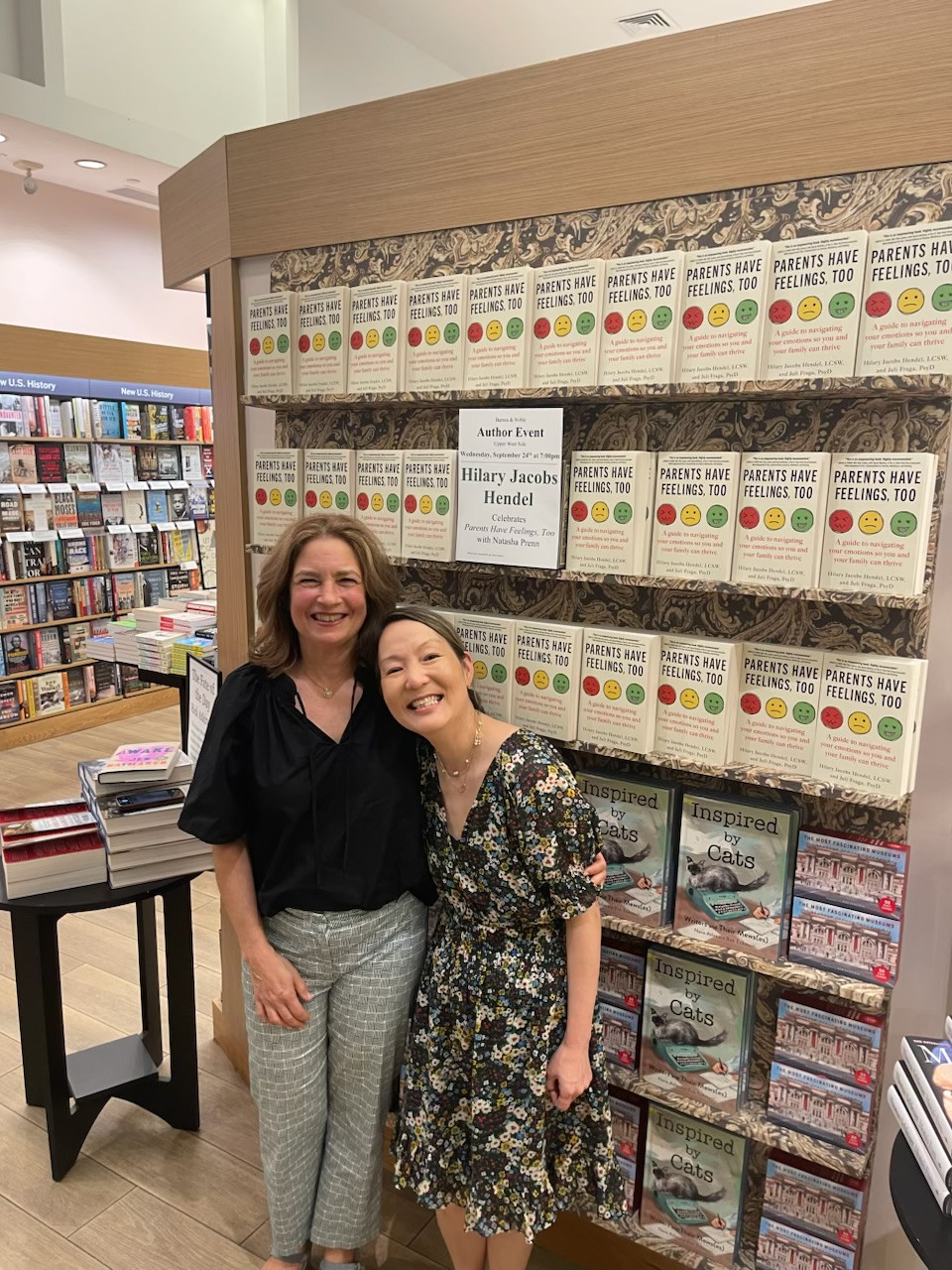 This blog is for all of you that have a complicated relationship with aging. As I type, I realize that statement is silly because we all do (right?)! None of us likes to come face to face with the reality that we’re slowing down. Whether it’s mental sharpness and memory, or physical strength and balance, aging gracefully with wisdom requires acknowledging these natural changes while discovering the profound gifts that come with each passing year.
This blog is for all of you that have a complicated relationship with aging. As I type, I realize that statement is silly because we all do (right?)! None of us likes to come face to face with the reality that we’re slowing down. Whether it’s mental sharpness and memory, or physical strength and balance, aging gracefully with wisdom requires acknowledging these natural changes while discovering the profound gifts that come with each passing year.
Quick Insight: Research shows that maintaining positive perspectives on aging is associated with better cognitive function, increased longevity, and improved overall health outcomes.
It may mean dealing with disease or disability. After all, who wants to wake up with back pain or soreness in joints? None of us wants to take endless visits to doctors to deal with organs that worked just fine a few short years ago! It’s also difficult to give up meaningful activities because we can no longer physically or mentally enjoy them.
The Reality of Physical Changes: Accepting What We Cannot Control
So how are we to approach this inevitable truth in life? We all deal with aging gracefully with wisdom in one way or another, whether you’re in your 40’s or in your 80’s. My personal “go to” is complaining (to anyone who’ll listen) that I can’t run like I used to. I imagined being one of those older guys that runs ultramarathons all around the country. Apparently, my body didn’t agree with this plan. What have you had to give up?
According to research published in the Journal of Health and Social Behavior, life transitions, including aging, are associated with increased psychological distress, even when the changes themselves aren’t inherently negative. This means that even positive aspects of aging can feel uncomfortable at first.
The Unexpected Gifts of Aging Gracefully with Wisdom
Fortunately, getting older has its advantages as well. Aging is more than just physical change or the passage of time. As we age, we experience life. We can be more mindful of the positive changes that come along with aging gracefully with wisdom, the most obvious being that it beats the alternative (attempt at a little humor there)! Humor aside, consider these profound positives of aging:
1. Wisdom: The Pearl Beyond Price
With life experience comes wisdom. The National Institute on Aging research indicates that older adults often develop enhanced emotional regulation and improved decision-making capabilities. Maybe to be more present, maybe to prioritize or focus on important activities or relationships, or to appreciate small things.
As noted by Jean Shinoda Bolen in her work on aging and spirituality, wisdom represents the culmination of lived experience, bringing with it an inner directedness and self-acceptance that younger years simply cannot provide.
2. Let Go: Freedom from Others’ Opinions
We can let go of what others think. As a young person we spend so much time trying to impress everyone. With age, it’s nice to take this off our plate. Work from the MacArthur network emphasized factors that help people maintain good mental and physical functioning into old age.
Did You Know?
Studies show that individuals who embrace aging rather than fight it experience up to 7.5 years longer lifespan and significantly better quality of life. Acceptance, not denial, is the key to aging gracefully with wisdom.
3. Deeper Faith: Spiritual Growth and Discovery
Along with wisdom, perspective, and experience comes our desire to know “who” we are. We question and explore our “why” which leads down the road of spiritual discovery and deeper faith. Research published in the journal Psychology and Aging demonstrates that spirituality often increases with age and serves as a powerful protective factor for mental health.
According to a comprehensive study cited in AARP Magazine, 80% of adults report that spirituality became more important over the course of their lives. This isn’t about fear, it’s about finally having the time, perspective, and emotional maturity to explore life’s deepest questions.
4. More Freedom: Time Becomes Yours
We tend to have more freedom (time and hopefully finances) when we are older. The post-retirement years offer opportunities many younger people can only dream about: traveling, pursuing hobbies, volunteering, or simply enjoying unhurried mornings with a good book.
5. Less Responsibility: A Lighter Load
We also tend to have more time to do things we want to do, spend time with people we care about, volunteer, and enjoy the newfound wisdom. The demands of career-building and child-rearing have eased, creating space for activities that truly fulfill us.
6. Deeper Relationships: Quality Over Quantity
With age, we tend to have longer, deeper relationships. The Harvard Study of Adult Development, one of the longest-running studies on happiness, conclusively demonstrates that the quality of our relationships is the strongest predictor of life satisfaction and longevity. As we age, we naturally prune superficial connections and invest in relationships that truly matter.
Pro Tip: The “Blue Zones” Approach
Communities with the highest number of centenarians share common traits: strong social connections, regular physical activity, plant-based diets, and a sense of purpose. Embracing these principles supports aging gracefully with wisdom at any stage of life. Learn more at Blue Zones.
Overcoming the Challenges: When Aging Gracefully with Wisdom Feels Hard
Despite these advantages, aging can feel overwhelming at times. You might be dealing with chronic pain, mobility limitations, or cognitive changes that challenge your sense of self. According to Geriatric Mental Health Care expert Gary J. Kennedy, MD, “the continuance of wellbeing into late age depends on the life pattern of each person,” meaning that acceptance of aging, rather than fighting it, correlates with better outcomes.

The key is reframing our relationship with aging. Research from How We Die by Anne Karpf reveals that ageism itself creates self-fulfilling prophecies. In cultures where aging is respected and valued, older adults perform better on cognitive tests and report higher life satisfaction than in cultures that devalue age.
The Power of Prayer and Faith in Later Life
Most importantly, no matter how we feel, we can always pray. If you ever feel weak or find yourself struggling for purpose, reflect on James 5:13-18 and remember the power of prayer. Sometimes, quieting life allows us to do what matters most.
Prayer and spirituality serve as powerful coping mechanisms during life’s transitions. A 2010 pilot study on spirituality-based interventions for generalized anxiety disorder found significant reductions in both psychic and somatic symptoms.
According to the APA, approximately 49% of U.S. adults reported praying about health. While the scientific community debates the mechanisms, what’s clear is that for those with faith, prayer provides comfort, connection, and a sense of meaning that supports aging gracefully with wisdom.
You’re Never Too Old for Growth and Change
One of the most empowering truths about aging is that you’re never too old to benefit from personal growth, therapy, or self-discovery. Research consistently shows that older adults can and do change, often with greater success than younger individuals because they bring decades of self-knowledge to the process.
Until you take your last breath, you are capable of change. Cognitive, emotional, and behavioral shifts are all still within your grasp, maybe even more so than when you were younger.
Moving Forward: Practical Steps for Aging Gracefully with Wisdom
Here are evidence-based strategies to help you embrace aging with grace:
Stay Physically Active: Even gentle movement like walking, yoga, or swimming supports both physical and mental health. The CDC recommends 150 minutes of moderate activity weekly for older adults.
Nurture Relationships: Invest in meaningful connections. The Harvard Study of Adult Development proves that relationship quality matters more than any other factor for happiness and longevity.
Challenge Your Mind: Engage in mentally stimulating activities. Learn a new language, take up a musical instrument, or tackle crossword puzzles regularly.
Cultivate Spirituality: Whether through organized religion, meditation, nature connection, or prayer, nurturing your spiritual life provides meaning and resilience. Explore our resource on why we value religion more as we age.
Practice Gratitude: Research shows that gratitude practices reduce depression and increase life satisfaction at any age.
Seek Support When Needed: There’s no shame in asking for help, whether from healthcare providers, therapists, or community resources.
Conclusion: Embracing Your Journey of Aging Gracefully with Wisdom
Aging is not a problem to solve, it’s a journey to embrace. While the physical changes may challenge us, the gifts of wisdom, deeper faith, meaningful relationships, and hard-won perspective make life richer than ever before.
As you navigate this chapter of life, remember that you’re not alone. Millions of people are discovering that aging gracefully with wisdom isn’t about denying change, it’s about embracing the fullness of who you’ve become and who you’re still becoming.
Pray on, stay connected, and remember: every day is an opportunity to grow, love, and live with purpose.
Ready to Embrace Aging Gracefully with Wisdom?
You don’t have to navigate the challenges and opportunities of aging alone. Professional support can help you discover the profound gifts that come with life’s later chapters while developing coping strategies for physical and emotional challenges.
The preceding article was solely written by the author named above. Any views and opinions expressed are not necessarily shared by GoodTherapy.org. Questions or concerns about the preceding article can be directed to the author or posted as a comment below.










